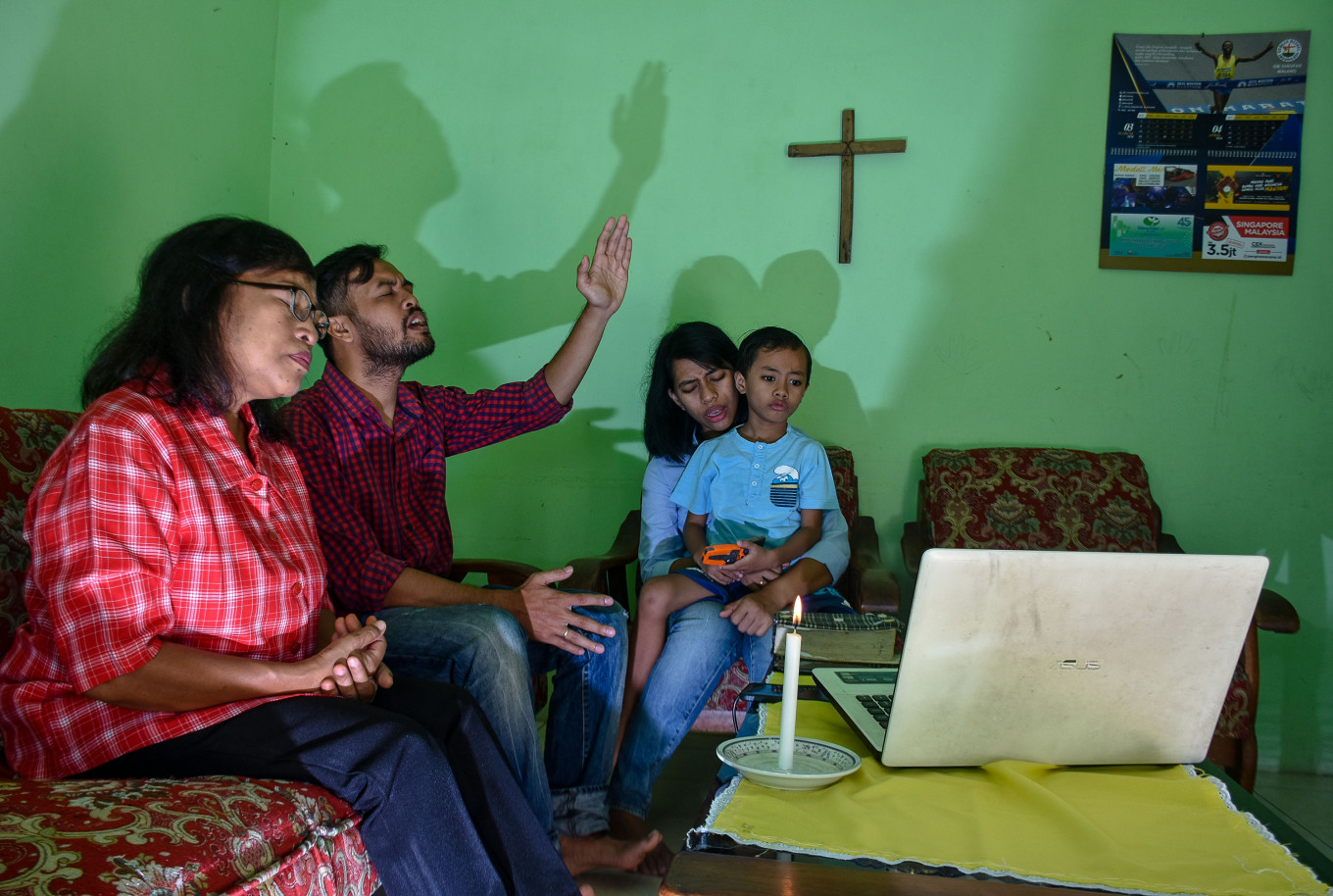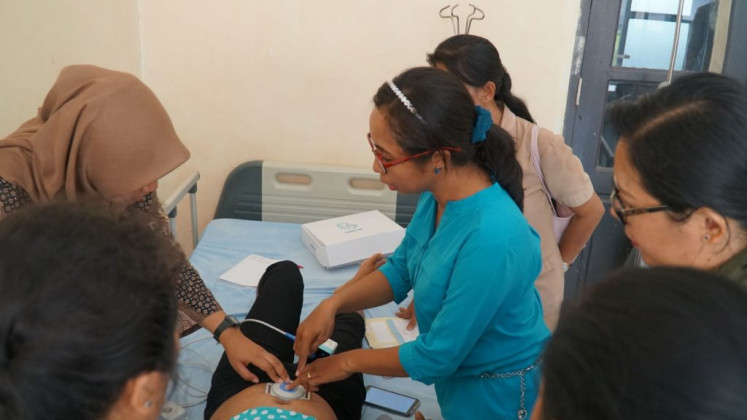Popular Reads
Top Results
Can't find what you're looking for?
View all search resultsPopular Reads
Top Results
Can't find what you're looking for?
View all search resultsOnline mass is but a spectacle
I am not saying that “online mass” may liturgically raise a problem in terms of eroding the participation of worshippers in celebrations. We should realize that real rituals in any religion are never generic and never exist in books or media. Nothing on a YouTube channel, for example, is a ritual.
Change text size
Gift Premium Articles
to Anyone
D
uring the COVID-19 pandemic, most Catholic dioceses across the country have closed their churches and suspended mass in compliance with the government’s health protocol. Live streaming and lately the TV live broadcast of mass has become a “novel alternative” to worshipping.
The new normal has in particular attracted many followers (viewers, subscribers and likes) and could be monetized, which is spectacular but only shows its profane nature.
I am not saying that “online mass” may liturgically raise a problem in terms of eroding the participation of worshippers in celebrations. We should realize that real rituals in any religion are never generic and never exist in books or media. Nothing on a YouTube channel, for example, is a ritual.
Rituals only occur with real people at real times in real places. This may seem too obvious to mention, but sometimes people think rituals are contained in books of rituals or in spectacles of rituals someone watches. These are not rituals at all but are only a guide for possible future rituals.
Read also: Churches turn to livestreaming, suspend activities to support social distancing
In Christianity, there are many different rituals (community-based prayers, pilgrimage, Eucharist, novena and so on) in which Christians worship God, ranging from praying at home to attending a church service. These rituals, either personal or communal, require them to participate or to get involved (to attend). This means those attending liturgical rituals are real participants who play roles as required by the church.
Participation is important as it creates a personal relationship between God and the believers. It can challenge Christians to become more mature and selfless. By participating in rituals, each Christian gears toward a maturation of faith.
To understand that point more deeply, we can compare liturgical rituals with theater. Distinctions between them are salient.
In theater, there are performers on the one hand and on the other hand, audiences. Both audiences and performers are more or less radically separated from each other, always in function, almost always in space, often clearly marked off by raised stages, curtains and so on.
The defining characteristic of audiences in contrast to performers is that they do not participate in the performance: they watch and they listen.
On the contrary, all those present in a ritual are participating in it. It is obviously not to claim that they all have the same or equivalent parts to play. Their roles may, in fact, be highly differentiated. There are obvious differences between initiators and initiates in rites of passage, between priest and lay people, but through their different roles they participate together in ritual.
Specifically, Catholic usage clearly recognizes differences in the participating roles of those present in stating that the priest presides over the mass, whereas the lay people celebrate it, for instance, by singing hymns.
Obviously, the priest has much more to do than do his parishioners, but their participation — and this seems true of all rituals — requires of them something more than passivity. Parishioners may be called upon to sing, dance or kneel in liturgical performances. Such acts, in addition to expressing whatever particulars they represent, indicate to performers that they are indeed participating and not merely watching.
Based on the explanation, we ought to realize that real rituals occur only to real people in real places. Thus, live-streamed rituals on YouTube cannot be categorize as real rituals; they are only a spectacle.
Read also: Amid coronavirus, God goes online to reach worshippers
Such a spectacle might be guiding people to pray, but not at the same time, be participants of it. Thus, if a parish priest, for example, asks his parishioners to participate in an online mass, at the same time, he also erodes the celebration and diminishes the liturgical participation.
Another example, in Lio, Flores, East Nusa Tenggara, local people held an annual traditional ritual called keti uta (harvesting vegetables) organized by all the tribes of the village. Participants are mosalaki (tribe leaders) and ana kalo fai walu (tribe members). During the ritual, mosalaki and ana kalo fai walu are obliged and tied by their customary law. Their participation affirms either the relationship among them or their relation with Du’a Ngga’e (Supreme Being).
Villagers who do not belong to any tribe or who are just assigned to that village can contribute, for example, by donating rice or erecting tents, but they are not allowed to participate. They are just ana tua embu nona (sympathizers).
Such a traditional practice is enough to show the difference between participants and sympathizers or between celebrants and spectators or between rituals and contributions. The live-streamed celebration, therefore, is not a real ritual, just a spectacle. It might be attracting many followers, but the followers are just spectators, not participants.
Not only in Christianity, in Islam and other religions, rituals require participants, not spectators. During the COVID-19 pandemic, which has prevented believers from going to their places of worship, the best way of participating in a ritual is praying at home.
***
Catholic priest, member of the Forum for Coastal Customary People (FORMAT-P) and social researcher working for Detukeli Research Center in Flores, East Nusa Tenggara










